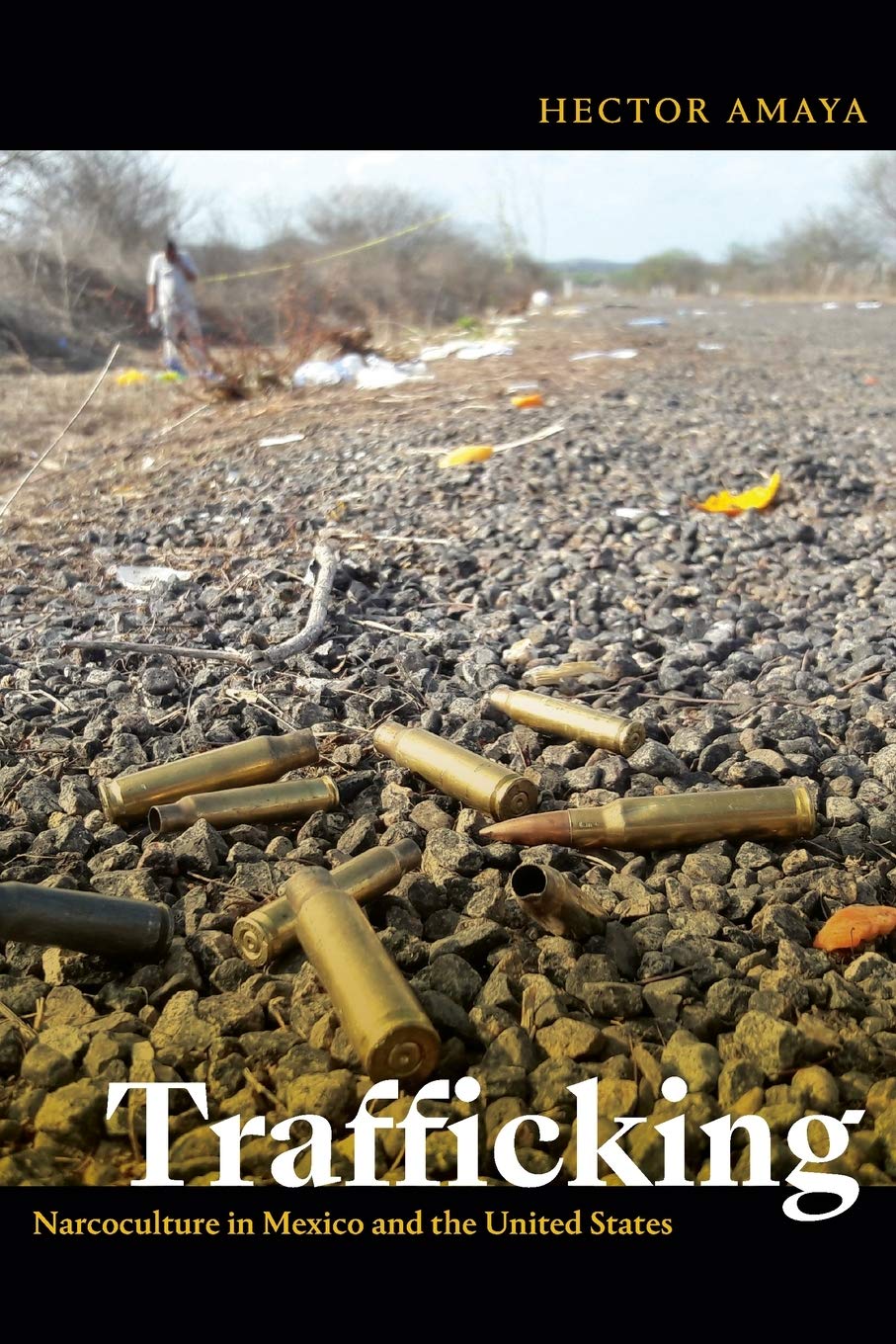
In Trafficking Hector Amaya examines how the dramatic escalation of drug violence in Mexico in 2008 prompted new forms of participation in public culture in Mexico and the United States.
These new forms of being in the public sphere, Amaya demonstrates, evolved to exceed the bounds of the state and traditional media sources, signaling the inadequacy of democratic theories of freedom and publicness to understand how violence shapes public discourse..
Amaya examines the practices of narcocorrido musicians who take advantage of digital production and distribution technologies to escape Mexican censors and to share music across the US-Mexico border, as well as anonymous bloggers whose coverage of Trafficking and violence from a place of relative safety made them public heroes.
He contends that, by becoming a site of national and transnational debate about the role of the state, this violence altered the modes publicness could take, transforming assumptions about freedom of expression and the rules of public participation.
In Trafficking Hector Amaya examines how the dramatic escalation of drug violence in Mexico in 2008 prompted new forms of participation in public culture in Mexico and the United States
